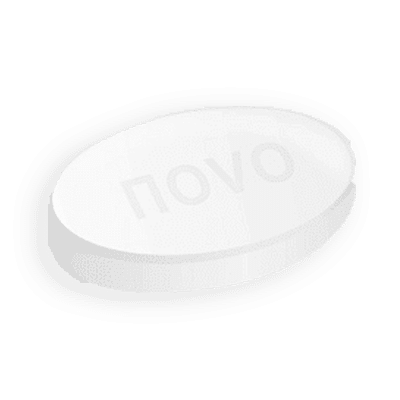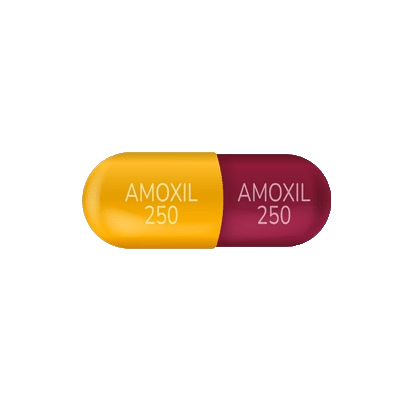I have been taking Glucophage for several years now and it really helps with my blood sugar levels. There are almost no side effects, except for a little nausea at the beginning of the intake, but it quickly passed. Very happy with the result.

Glucophage
- Discreet shipping
- Pay with crypto
- Quality products
- BTC,
- ETH,
- USDT,
- USDC
What is it?
Glucophage is an oral diabetes medication used to treat type 2 diabetes. Its active ingredient is Metformin, a biguanide. The drug reduces blood glucose levels by inhibiting its metabolism in the liver, reduces glucose absorption in the gastrointestinal tract, and enhances its use in tissues. Glucophage stabilizes or reduces the patients body weight. However, the therapeutic effect of the drug does not occur in the absence of insulin in the blood. Instead, it improves the fibrinolytic properties of the blood, which helps combat diabetes complications. It is especially effective in treating type 2 diabetes in cases where treatment with sulfonylurea drugs has proven ineffective, particularly in overweight patients.
Frequently asked questions
Composition
Glucophage contains the main active ingredient, Metformin, which has special properties aimed at lowering blood sugar levels. Metformin is a biguanide that works through several mechanisms, providing comprehensive support for the body in diabetes. The drug also contains excipients that promote better absorption and distribution of the active substance throughout the body.
- Metformin is the main active ingredient.
- Cellulose and magnesium stearate are excipients that help in the formation of tablets.
- Polyethylene glycol and povidone are components that ensure the stability of the drug.
This combination of substances makes Glucophage a powerful tool in the treatment of type 2 diabetes, helping patients maintain blood sugar levels within normal limits.
How to use?
Glucophage must be used strictly according to the instructions and recommendations of your doctor to avoid unwanted side effects and ensure maximum effectiveness of the therapy. Always follow the recommendations, especially when it comes to dosage, because improper use can lead to serious complications.
- Before starting to take the drug, consult your doctor for individual recommendations.
- Take Glucophage with food, unless your doctor has instructed otherwise. This will help reduce the risk of gastrointestinal upset.
- The usual starting dosage is 500 mg twice a day or 850 mg once a day, depending on your blood sugar level. The maximum dose should not exceed 2550 mg per day in three divided doses.
Following these instructions will help not only in controlling your blood sugar levels, but also in minimizing the risk of side effects.
How does it work?
The mechanism of action of Glucophage is based on a comprehensive approach to reducing blood glucose levels by combining several pharmacological actions. Metformin, the main substance of the drug, inhibits the utilization of glucose in the liver and reduces its absorption in the intestine. Due to these properties, Glucophage effectively reduces not only blood sugar levels, but also improves the condition of diabetes in general.
One of the key factors that makes Glucophage especially useful in the fight against type 2 diabetes is its ability to potentiate the utilization of glucose in peripheral tissues. This contributes to better glycemic control and helps reduce insulin resistance - one of the main causes of the development and progression of diabetes. Also, the drug does not cause hypoglycemia, which makes it a safer choice for most patients.
Another positive aspect is the lack of effect of Metformin on weight gain, which is especially important for overweight patients. Due to these properties, Glucophage has proven itself as a reliable partner in the treatment of type 2 diabetes.
Indications
Glucophage is used to treat various conditions associated with impaired glucose utilization by the body. The drug is widely used in endocrinology and is one of the key drugs in the treatment and correction of metabolic disorders.
- Treatment of type 2 diabetes in adults, especially in overweight patients.
- Use in cases where sulfonylurea therapy has proven ineffective.
- Use as a primary or auxiliary agent in combination therapy with other antidiabetic drugs and insulin.
These indications make Glucophage a universal drug in the fight against one of the most common diseases of our time.
Contraindications
Despite its effectiveness, Glucophage has a number of contraindications that must be taken into account when prescribing and using the drug. It is very important to consult a doctor before starting treatment to avoid potential health risks.
- Hypersensitivity to the components of the drug, including metformin.
- Conditions accompanied by severe renal or hepatic insufficiency.
- Pregnancy and breastfeeding are strict contraindications.
- Some chronic diseases, such as cardiac and respiratory failure, may be an obstacle to taking the drug.
- History of lactic acidosis.
Proper observance of contraindications helps prevent the development of serious side effects and complications associated with the use of Glucophage.
Side effects
Like any medication, Glucophage can cause side effects that vary in severity and frequency. The vast majority of these effects are associated with gastrointestinal problems.
- The most common are nausea, vomiting, stomach upset, and loss of appetite, which may resolve with continued treatment.
- More serious effects include the development of lactic acidosis, which requires immediate medical attention.
- Allergic reactions, including skin rash or swelling, may also occur and require medical attention.
Informing your doctor about any adverse reactions and following his or her recommendations will help minimize the risk of complications from taking Glucophage.
Glucophage Reviews and Experiences
I took Glucophage to control type 2 diabetes as prescribed by my doctor. It helped stabilize my glucose levels and even helped me lose a little weight. The only thing is that sometimes there are minor stomach upsets, but overall the drug is good.
Glucophage became part of my daily life after I was diagnosed with type 2 diabetes. Improvement was noticeable within a few weeks, glucose levels dropped and even my general well-being improved. There were virtually no problems with side effects.



